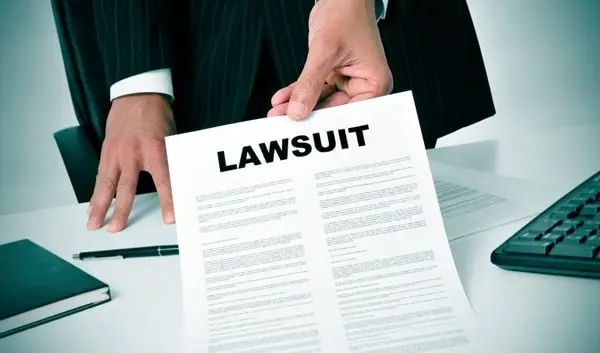Midland Credit Management (MCM), one of the largest debt collectors in the U.S. and a subsidiary of Encore Capital Group, has faced multiple lawsuits in recent years due to alleged unfair debt collection practices. These legal actions highlight issues with MCM’s collection methods, including lawsuits without adequate documentation and attempting to collect on time-barred debts. Both federal regulators and state attorneys general have taken actions against MCM, resulting in penalties and mandated changes to the company’s practices.
Background on Midland Credit Management
MCM primarily purchases debt from credit card companies and other creditors for pennies on the dollar, then pursues collection by contacting debtors and, often, filing lawsuits. The company’s practices have drawn scrutiny and led to significant litigation, with plaintiffs alleging that MCM engages in aggressive tactics that sometimes violate consumer protection laws. Key cases include actions by the Consumer Financial Protection Bureau (CFPB) and a multi-state settlement with attorneys general across the U.S., which targeted MCM’s approach to documentation and debt verification.
The CFPB Lawsuit and Settlement
In 2020, the CFPB filed a lawsuit against MCM, Encore Capital Group, and associated subsidiaries, alleging violations of the Fair Debt Collection Practices Act (FDCPA) and Consumer Financial Protection Act (CFPA). The complaint centered on claims that MCM pursued lawsuits against consumers without having necessary documentation and that it failed to provide legally required disclosures. It also alleged that MCM attempted to collect on debts where the statute of limitations had expired, which is illegal without proper consumer disclosures.
The settlement required MCM and its affiliates to pay $79 million in consumer redress and a $15 million civil penalty. MCM was also mandated to reform its practices, including improving documentation standards and verifying debts before attempting collections. This agreement aimed to reduce the incidence of “robo-signed” affidavits—documents signed without verifying the information they contained, which was a common practice that led to erroneous lawsuits and judgments against consumers.
State-Level Settlements and Requirements
In a separate multi-state settlement led by Pennsylvania’s attorney general in 2018, MCM agreed to pay $6 million and enact reforms to address similar complaints at the state level. This settlement addressed allegations that MCM used inaccurate affidavits in court and failed to provide sufficient evidence of debt ownership and legitimacy before filing lawsuits. The settlement stipulated that MCM must provide consumers with clear documentation and proof of debt upon request and refrain from reselling certain debts for two years. The agreement also mandated that MCM must carefully verify information in affidavits filed in court, thus protecting consumers from potentially unsubstantiated debt claims.
Key Issues Raised in the Midland Credit Management class action lawsuit
- Time-Barred Debt Collection: One significant issue was MCM’s attempts to collect on debts that had exceeded the statute of limitations, effectively “reviving” old debts. The law prohibits collectors from suing over expired debts without clear disclosures, which MCM allegedly failed to provide.
- Inadequate Documentation: MCM’s collection efforts were criticized for relying on “robo-signing” practices, where affidavits were signed without proper verification of debt validity. This led to cases where consumers faced judgments for debts they did not owe or where MCM lacked the evidence to substantiate its claims.
- Consumer Protection Violations: The CFPB and state attorneys general argued that MCM’s practices misled consumers, depriving them of necessary information to defend themselves against potentially unjust debt collection efforts. The lawsuits underscore the importance of adhering to consumer protection laws, especially when dealing with sensitive financial matters.
What This Means for Consumers
Consumers facing debt collection efforts by MCM should be aware of their rights. Under the settlement agreements, MCM is required to:
- Provide Documentation: Consumers can request validation of any debt MCM claims they owe. The company must supply proof of the debt’s validity, including original account documents, at no cost to the consumer.
- Avoid Time-Barred Collections: MCM is prohibited from suing over time-barred debts unless it provides clear disclosures to consumers, helping them make informed decisions about their financial obligations.
- Allow for Dispute and Review: If a consumer disputes a debt, MCM is obligated to pause collection efforts until the matter is resolved, ensuring that consumers are not unfairly pressured into paying unverified debts.
Steps for Consumers Facing MCM Lawsuits
If you are being pursued by MCM for an alleged debt, consider the following steps:
- Request Verification: Always ask MCM for proof of the debt, especially if you do not recognize it. This includes a detailed account history and verification of any charges or fees added.
- Check Statute of Limitations: Confirm whether the debt is within the statute of limitations. If it’s expired, MCM is restricted in its ability to sue and must provide disclosures if it attempts collection.
- Consult Legal Advice: Consumer rights attorneys can help defend against unverified or potentially illegal debt collection efforts, and some states offer resources or legal aid to assist with these cases.
Conclusion
The legal actions against Midland Credit Management serve as a reminder of the importance of consumer rights in debt collection. Both the CFPB and state settlements underscore the need for transparency, accuracy, and fairness in the collection process. For consumers, understanding these rights is crucial to avoiding undue financial harm. Moving forward, MCM is expected to operate under stricter guidelines, which could help improve the standards across the debt-buying and debt-collection industry, promoting more ethical practices in the future.


